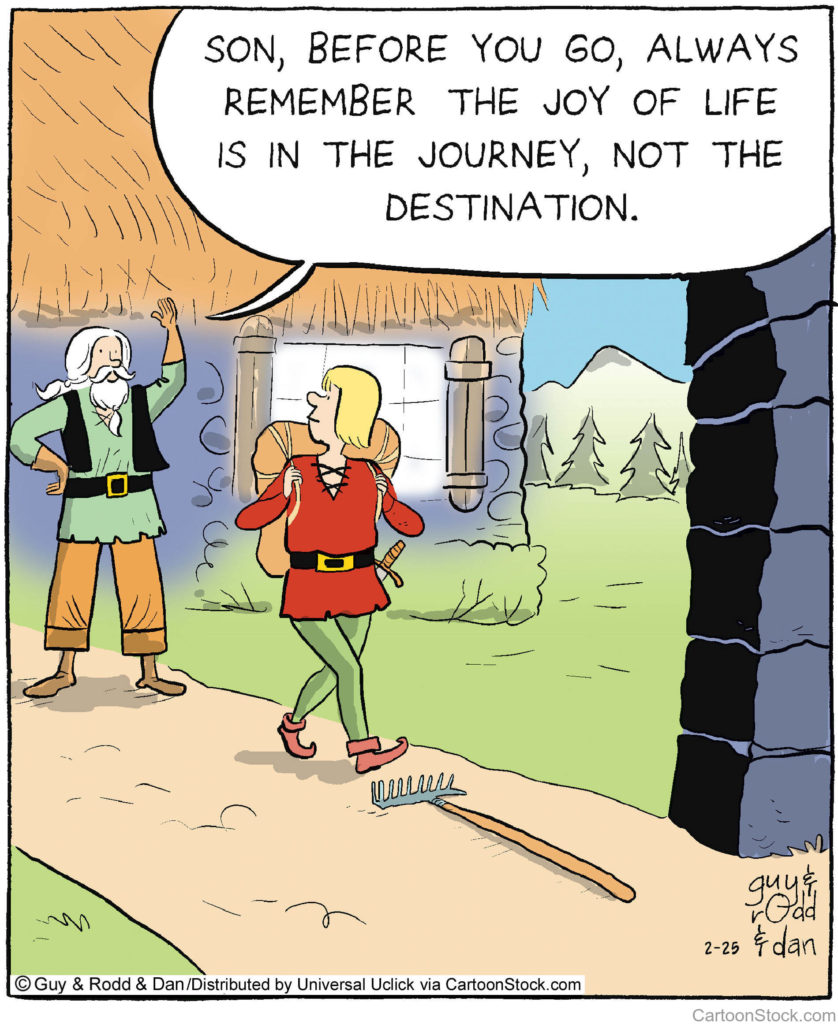 Culture is the sum of the values, beliefs, and norms of behavior of a group of people.
Culture is the sum of the values, beliefs, and norms of behavior of a group of people.
We all live in multiple cultures. For example, I live in a national culture (U.S.), a regional culture (Texas), the organization I work for has a culture, as does my church, family, and neighborhood.
Culture is powerful. Like the strong current of a wide and deep river, it is often unseen but it is forceful and hard to counter.
Only by visiting “foreign” cultures are we aware of our own. As children, we’re unaware of our family’s culture until we spend time at a friend’s house. Only by traveling to other countries do we understand our own country’s culture. (Yet another reason to travel internationally.)
There are positive and negative aspects of all cultures.
Mary and I recently visited Peru. (I highly recommend it.) I noticed these positive expressions of culture:
-
- In Lima, our tour guide casually mentioned that Peruvians don’t smoke. Indeed, throughout our eight-day visit I seldom saw a cigarette. Smoking is not outlawed and there’s not been a campaign against it. Why do they abstain from smoking? It’s just not part of their culture.
- The towns and cities in Peru are clean—there’s no trash or litter. Even small, poor, rural villages are neat. There’s no law against littering, they just don’t do it.
- The people are kind, gentle, and accommodating. I never heard a harsh word or sensed unkindness.
I also observed some negative cultural tendencies.
-
- Peruvians are trapped in unnecessary and tedious bureaucratic processes. For instance, there was a long line to get a ticket to a second-tier museum. When it was my turn to purchase a ticket (only $3 US), I realized why: I had to show my passport, the agent filled out a form in triplicate, ran it off on a dot-matrix printer, and then summarily stamped each copy with an official stamp. All that effort to let one person in a public, easily accessible area.
- Most Peruvians are Catholic, which is not surprising because when the Spanish invaded their land they gave them two choices: convert to Catholicism or be executed. But, some people still adhere to Inca beliefs, one of which is: the water-god is stronger than the sun-god because every evening the sun-god is defeated by the water-god as it is extinguished by the ocean (the sun setting in the west).
Leaders: What are some positive and negative aspects of your organization’s culture?
The best time to establish culture in an organization is at its beginning.
Both my daughter and son-in-law are serial entrepreneurs. Recently, they each started a new business—one in the medical field, the other in environmental sustainability. Their businesses have no culture because they are new. The best time for them to establish positive cultural distinctives is now, while the “clay is soft.” Priorities like good customer service, innovation, and excellence can be easily imbedded into the DNA of an organization when it is new.
It’s difficult to change the culture of a large and/or old organization.
One of the great challenges of leadership is to change the culture of an existing organization, particularly one that is large and old. If the culture is healthy and effective, there’s no need to change, just be sure to hire team members who are a good fit. But if you want to change the culture, be ready for a long, bumpy ride. You will want to hire team members who already embody the values, beliefs, and norms of behavior that you aspire to develop in the organization. Prepare to “swim against the current” for a long time and anticipate resistance.
Leaders: your job is to establish and maintain a healthy culture in your organization. Be proactive in that responsibility.
Parents: every family has a culture; make sure yours is healthy and beneficial. Here are some examples: we will acknowledge and affirm the uniqueness of each family member; we will prioritize travel; we will encourage open dialogue and intellectual pursuit; we will be a family of faith; we will maintain a positive atmosphere.
[reminder]What are your thoughts about this essay?[/reminder]
 I recently read a Q&A on quora.com, a website where people ask questions and anyone can answer. Someone asked: “What can we learn about driving a car from professional drivers?”
I recently read a Q&A on quora.com, a website where people ask questions and anyone can answer. Someone asked: “What can we learn about driving a car from professional drivers?”
 In an interview with Vanity Fair, former president Obama said, “You’ll see I wear only gray or blue suits. I’m trying to pare down decisions. I don’t want to make decisions about what I’m eating or wearing, because I have too many other decisions to make.”
In an interview with Vanity Fair, former president Obama said, “You’ll see I wear only gray or blue suits. I’m trying to pare down decisions. I don’t want to make decisions about what I’m eating or wearing, because I have too many other decisions to make.” Things won are done; joy’s soul lies in the doing. Shakespeare
Things won are done; joy’s soul lies in the doing. Shakespeare




 Culture is the sum of the values, beliefs, and norms of behavior of a group of people.
Culture is the sum of the values, beliefs, and norms of behavior of a group of people.